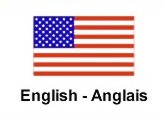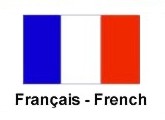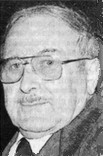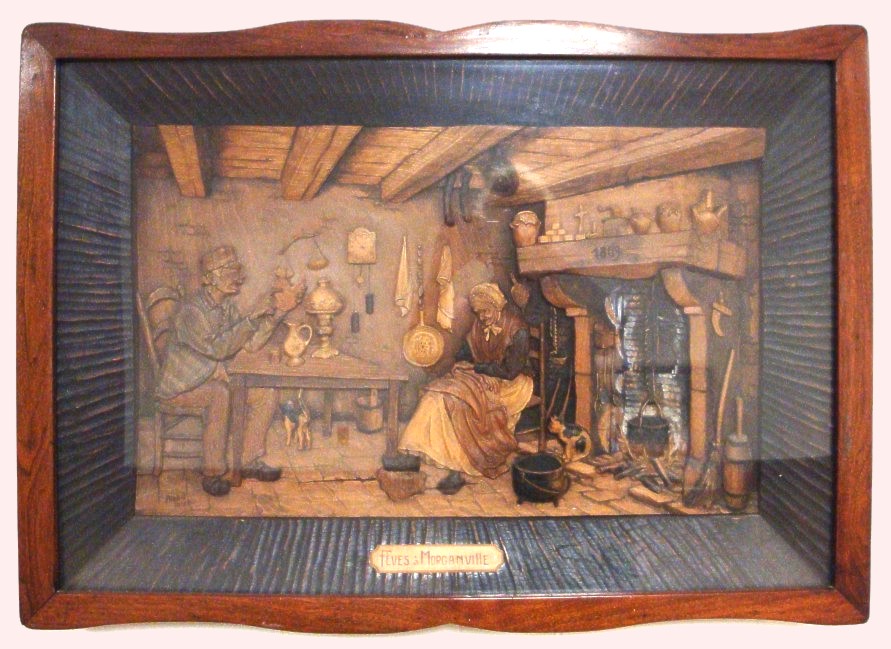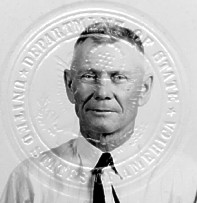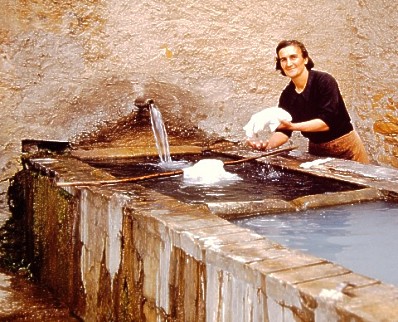The Utleys' tour of duty in Paris for TWA was drawing to a close. But before they left France, they visited Fèves again as Torlotting's letter confirms. He also mentions the purchase of a painting for Morganville. However, the word the person in Morganville translated as painting has other possible meanings. What Fèves had selected was no ordinary painting.
Aimé Thiam lived near Metz. He perfected a technique for making images from small pieces of carved wood set into a background. The resulting artwork was more sculpture than painting. His son Albert carried on this work. During the war, Albert was conscripted by the Germans to fight the Russians. Captured, he was sent to the Soviet Tambow Concentration camp as a prisoner of war. Released after the war, he returned to his native Lorraine to resume his craft. Fèves would have been one of his customers.
Albert Thiam
The gift Fèves had selected languished in French customs just as the one from Morganville had. The marquetry Thiam
created left Paris on March 17, 1950, but how long it remained at the airport in Paris is unknown. It arrived
in Morganville on April 25.
Jacobson's painting was shipped shortly after Thanksgiving, but Roenigk was still asking for help in mid-March from French attaché
Jacques Rimey in Chicago. The painting finally reached its destination near the start of April.
Woodcutting presented to Morganville by Fèves
The exchange of the painting and the woodcutting, coordinated by the villages' respective committees represented a new phase in the community partnership. But a few of the adults and school children connected as individuals. This was difficult, owing to the language barrier. But some were undeterred. Joel Weyland of Fèves wrote the following letter on May 2, 1949 to Donna Carlson of Morganville. Both were 12 years old.
Dear Friend:
I have received your very gentle little letter which gave me great pleasure and also my parents to receive news from a
little American. My name is Joel Weyland, born the 25th of October, 1936, at Metz, the son of farmers. I have one sister
23 years old, already married and two brothers, Remy, 19 years old, and Girard 8 years old. We are all in good health
and hope you are the same. Unfortunately, the war caused great damage to my parents' home and livestock, etc.
We have received many nice things from you. I wish to thank you and assure you your kindness will never be forgotten.
I extend to you and your parents my sincere salutations.
Joel Weyland
In November 1949, Morganville farmer August Kolling returned from his trip abroad that included a stop in Fèves. His slide
show at the local school and the story he had to tell kept interest running high.
Kolling had not been a supporter of Morganville helping Fèves, feeling there were many people nearby who needed
help. In a 1950 interview, he described a bit of what he experienced in Fèves and how it changed his opinion.
August Kolling's 1949 passport photo
You know, I didn't like all the hullabaloo about Feves to start with. Then I saw the Farm Bureau was advertising an all-expense tour to Europe, so I figured it was about time I did something like that myself.
I left the tour at Nancy and went to Metz. I hired a taxi to drive me the eight miles to Feves. Mr. Torlotting invited a group of farmers to meet "the man from Kansas." They all chipped in for a wonderful lunch: three or four kind of sausages, a half-chicken, rabbits, a big platter of vegetables, and a cake baked in rum. One farmer brought in what they call "the Mirabelle." Wow, one good swallow was all I could take! Then we sat for four hours eating and talking. We got to talking about the town's need of waterworks. I guess they thought I might help some. They had a community laundry place by a stream, with planks across it.
Fèves public wash area
After lunch, we went out to see Mr. Pierson's farm. First thing struck me was he had an American crawler-type tractor, but
no tracks. He said the old tracks had wore out. So I offered to buy them for him. And he just kept on smoking his stub of a
pipe and then he said, through the interpreter: "I can pay for them; fact is, I've ordered them. And they are now in
Rheims. But they are telling me something I do not much understand; that my country has bought more goods from your
country than you have bought from France, and that the dollars here are not enough."
Well, that little incident rankled in me. In fact, it made me mad. So when I got back home, I talked a bit different from
what I had at first. And I've been telling the farmers we need to buy more goods from France.
So all during the fall of 1949 and the spring of 1950, Morganville kept buying and shipping sugar and other items that were hard to buy in Fèves. At the end of 1949, another Noel Ball was held at the schoolhouse in Morganville to help pay for these goods and their shipping.
